Experience. Insight. Reputation. Results.
A Practice Limited to Licenses and Regulatory Law. This is the Ray & Bishop Difference.
Investigations
When you are the target of an investigation, you need the help of an experienced professional license investigation attorney. At Ray & Bishop, PLC, our attorneys protect your professional license if you are being investigated by the Department of Consumer Affairs (DCA), the Medical Board of California, the Department of Insurance, or any other licensing agency. Investigations can be triggered by a report of a crime made by the California Department of Justice, or by a consumer complaint filed with a state agency, even if the complaint is filed anonymously.
Investigators from these agencies are peace officers who can report their investigations to a licensing agency, to the Deputy Attorney General at the Department of Justice, or to the District Attorney for possible criminal charges. However, licensees have a right to learn the substance of the complaint under Business and Professions Code 800(c). At Ray & Bishop, PLC, we help protect our clients by exercising their rights at each stage of the investigation to protect against an Accusation and to make sure that Authorizations for Releases of Employment Records and other documents are reviewed carefully before submitting to an investigator.
Agencies under the California Department of Consumer Affairs (DCA), including the Medical Board of California, Dental Board of California, the Bureau of Real Estate and the Board of Registered Nursing have their own investigators. Smaller boards often use investigators from the Division of Investigation of the Department of Consumer Affairs to conduct their investigations. The Board of Registered Nursing uses both DCA investigators and its own investigative staff. In an investigation, an investigator may be paired with an attorney in what is referred to as a vertical assignment or vertical prosecution. An investigator may also work closely with a Board expert.
Responding to licensing agency requests for records and investigative subpoenas can be very tricky. It is best to let experience license investigation attorneys deal with the complicated strategic and legal questions involved. Our experienced attorneys at Ray & Bishop, PLC, have protected hundreds of professionals facing this situation.
Most state agencies have regulations that mandate cooperation with agency investigations. However, clients can exercise their Fifth Amendment right to remain silent. Refusing to answer questions in an investigation interview can be a missed opportunity to provide critical balanced information to an agency, or be a good decision that protects the licensee from making damaging admissions. Our attorneys approach investigations with thoughtfulness and caution.
Sometimes a licensee’s first contact with the state agency is a letter asking the licensee to sign a waiver form for the release of records. If this happens to you, your privacy is at stake. These records are highly personal and sensitive. They may contain information about how much money you have made, your performance at work, illnesses you have suffered, or complaints of harassment you have made. Although you may feel that your personal records do not in any way negatively reflect upon you, you might be surprised. A licensing board may be looking for any evidence of drug or alcohol abuse, impairment, poor judgment, practice errors, mental health issues, or competency issues. The scope of the inquiry is very broad. The experienced license investigation attorneys at Ray & Bishop, PLC, can help you deal with all of these issues.
Did You Know?
- Licensing agencies have broad discretionary authority to investigate professional licensees. They do not have to give a reason for their investigation, and they do not have to suspect wrongdoing in order to begin an investigation. They can investigate you to make sure you aren’t breaking the law.
- Investigations by law are confidential, and unless your employer is the reporting party or the suspected conduct took place at work, it is very rare for an employer to be separately notified of the existence of an investigation.
- Investigations do not always lead to Accusations. However, every investigation has the potential to become a disciplinary matter, and must be handled with care.

Contact Us
Disclaimer
**Attorneys are only licensed to practice law in California. Attorneys’ offices are only located in California. However, pursuant to United States Code of Federal Regulations 8 C.F.R. § 1.2 and United States Code 5 U.S.C. § 500, Attorneys may practice Federal Administrative Law and represent an individual located outside of California within the parameters of Federal Administrative Law. Attorneys will NOT advise clients on the laws of any State or any State law legal matters (with the exception of California). The information on this website is for general information purposes only. Nothing on this site should be taken as legal advice for any individual case or situation. This information is not intended to create, and receipt or viewing does not constitute, an attorney-client relationship. Legal advertisement.**
